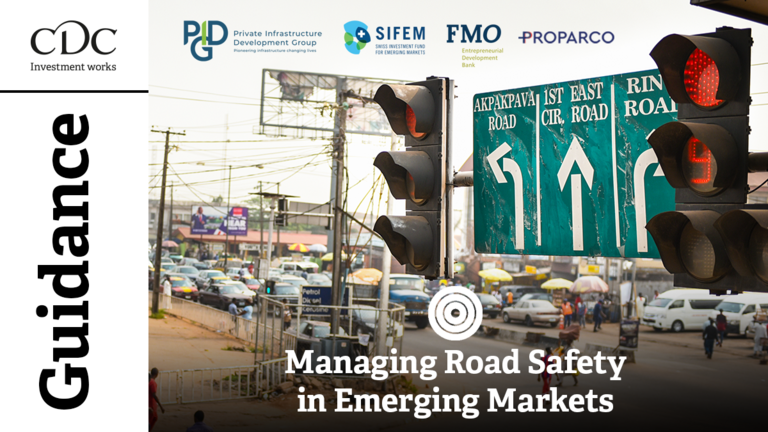Menu
Travelling on roads supports economic and social development all over the world. Yet every year, vehicles are involved in crashes that cause millions of deaths and injuries. According to the World Health Organization, 93 per cent of the world’s fatalities on the roads occur in low and middle-income countries, despite these countries having approximately 60 per cent of the world’s vehicles.
Travelling on roads supports economic and social development all over the world. Yet every year, vehicles are involved in crashes that cause millions of deaths and injuries. According to the World Health Organization, 93 per cent of the world’s fatalities on the roads occur in low and middle-income countries, despite these countries having approximately 60 per cent of the world’s vehicles.
The private sector and investors are increasingly seeing a need to enforce stronger practices around road safety in organisations in emerging markets. Establishing a strong road safety culture and reinforcing this by senior management is a key foundation for good road safety management systems.
SIFEM, along with CDC, PIDG, FMO and Proparco, have worked together to establish a guidance note aimed at helping investors and companies strengthen or develop their own road safety management systems. The good practice note aims to support organisations in emerging markets to improve their road safety processes by providing practical advice on planning, implementing, monitoring, and reporting on road safety management systems. The note is not meant to provide new standards, but to provide practical tools, case studies, good practices, and access to external resources to support investors and companies to strengthen or develop road safety management systems.

SIFEM contributes USD 15 million to the fund allowing it to reach target fund size and supporting infrastructure and climate projects in Colombia and Peru.
SIFEM contributes USD 15 million to the fund allowing it to reach target fund size and supporting infrastructure and climate projects in Colombia and Peru.